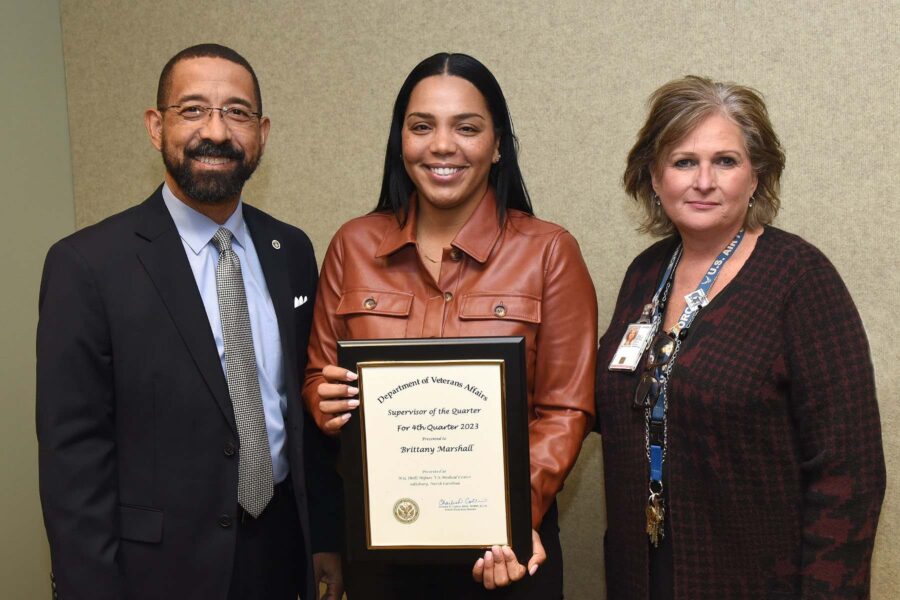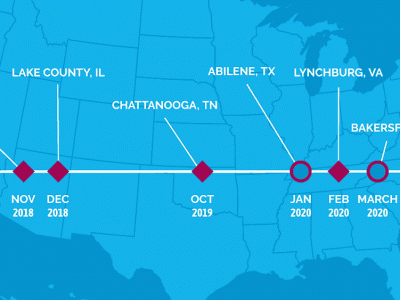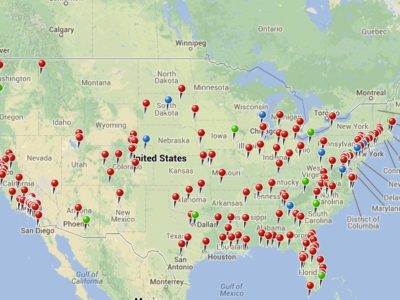
Brittany Marshall is a Licensed Clinical Social Worker and Clinical Addictions Specialist with the W.G. (Bill) Hefner Salisbury Department of Veteran Affairs Medical Center in Salisbury, North Carolina. She has worked there for three years, and currently serves as the Health Care for Homeless Veterans (HCHV) Program Director.
With coverage across Charlotte-Mecklenburg County, the HCHV Program provides services and resources to veterans experiencing homelessness, including outreach, residential programs, employment services, and other housing programs such as HUD-VASH, permanent supportive housing, and Grant and Per Diem transitional housing.
In her various roles across the VA Medical Center, Marshall has played a part in county-wide efforts to reach functional zero for veteran homelessness. This has included serving on her community’s Continuum of Care (CoC) workgroups and Board, participating in the Housing Our Heroes workgroup, and attending Built for Zero Learning Sessions.
“Our team is constantly working to achieve fiscal and annual year goals to permanently house veterans,” she explained. “We work with each enrolled veteran to develop and achieve individualized housing goals, which requires a high level of coordination and collaboration with various community stakeholders including public housing authorities, SSVF, shelters, outreach teams, and the CoC across our 21-county catchment area.”
Read on to learn more about Marshall’s perspective on utilizing VA’s Equity Improvement Initiative, placing senior veterans in Charlotte’s first project-based property, and organizing impactful events like Veteran Stand Down.
What initiatives or projects is your team undertaking now?
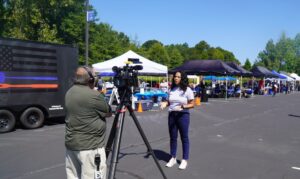
Most recently in Charlotte, our team assisted 36 senior veterans with placement in our first project-based property. This was a major project for the team that included collaboration with our housing authority, the property management team, our local CoC, and community resources. The team continues to support the project by increasing relations with geriatric services and resources, both internal and external to VA, to best support veterans aging in place.
Additionally, we are planning our 3rd Annual Veteran Stand Down event in Mecklenburg County, which will happen in September. Stand Downs provide an opportunity for veterans experiencing homelessness to rest from the combat of homelessness, for camaraderie, free entertainment, a warm meal, and to access available VA and community services and resources. We look forward to bringing together these services and resources to support the needs of local veterans and hope to grow the event annually.
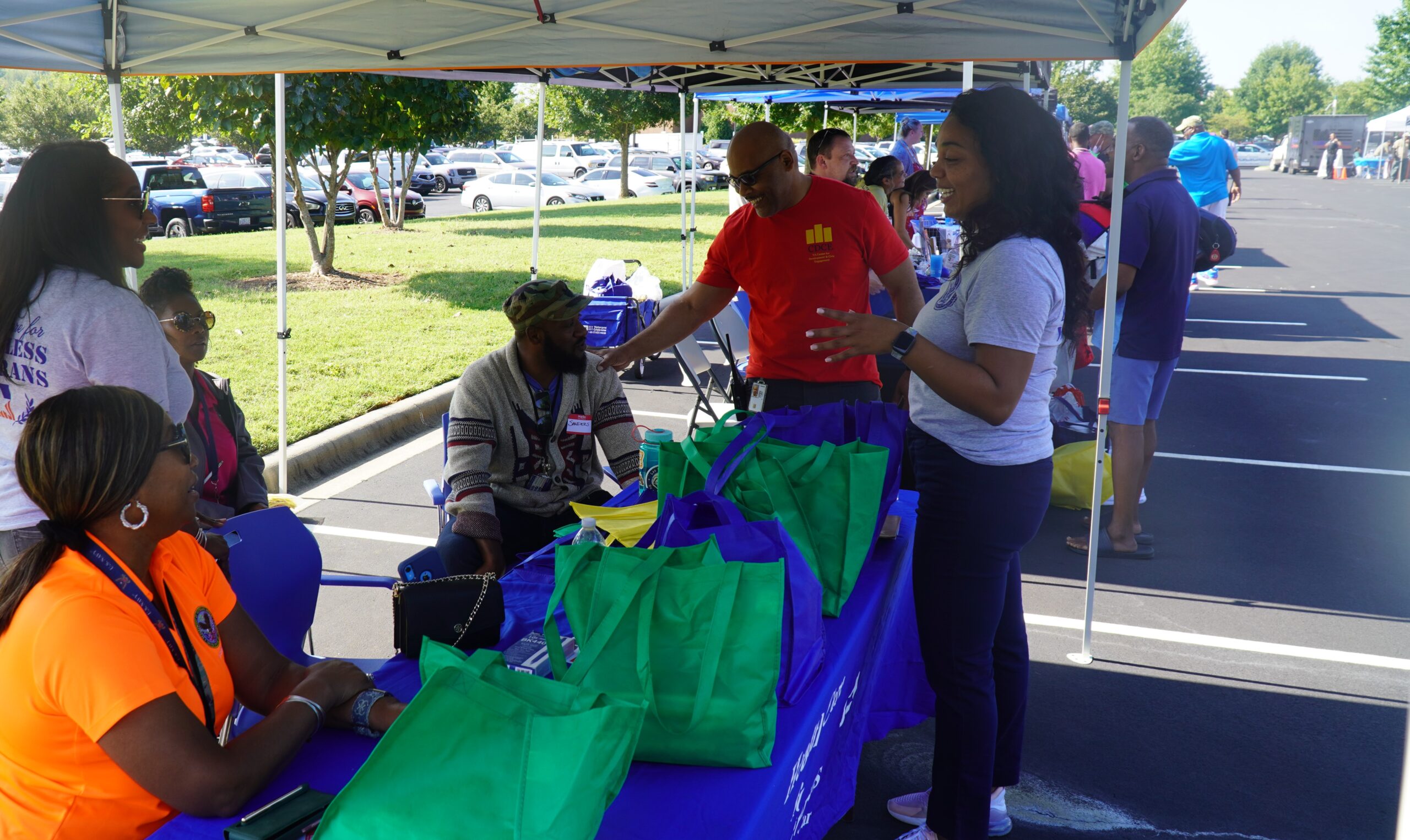
How is your community working to make your homeless response system more equitable?
In 2021, the Veterans Health Administration (VHA) Homeless Program Office implemented its Racial Equity Improvement Initiative, which included workgroups focused on policy and program improvements, direct patient care improvements, and staff support. This initiative developed the equity dashboard and quality improvement tools, addressing disparities in access and outcomes for veterans engaged in VHA homeless programs. Today, these tools support equitable access and outcomes for all veterans served.
Can you share any innovative strategies or best practices your organization has implemented to address systemic barriers to fair outcomes?
As a VA employee, I support diverse experiences, backgrounds, and perspectives of veterans and employees alike by promoting and upholding VA’s I*DEA principles of inclusion, diversity, equity, and access.
As a supervisor, I empower my team not only by building rapport but also by identifying their individual strengths and abilities and providing opportunities for them to each reach their full potential. I additionally assist as a panelist on our diverse hiring panels, contribute to VA-facilitated cultural conversations, and participate in our community wellbeing committee events with their efforts to educate, increase awareness, and create opportunities for open dialogue.
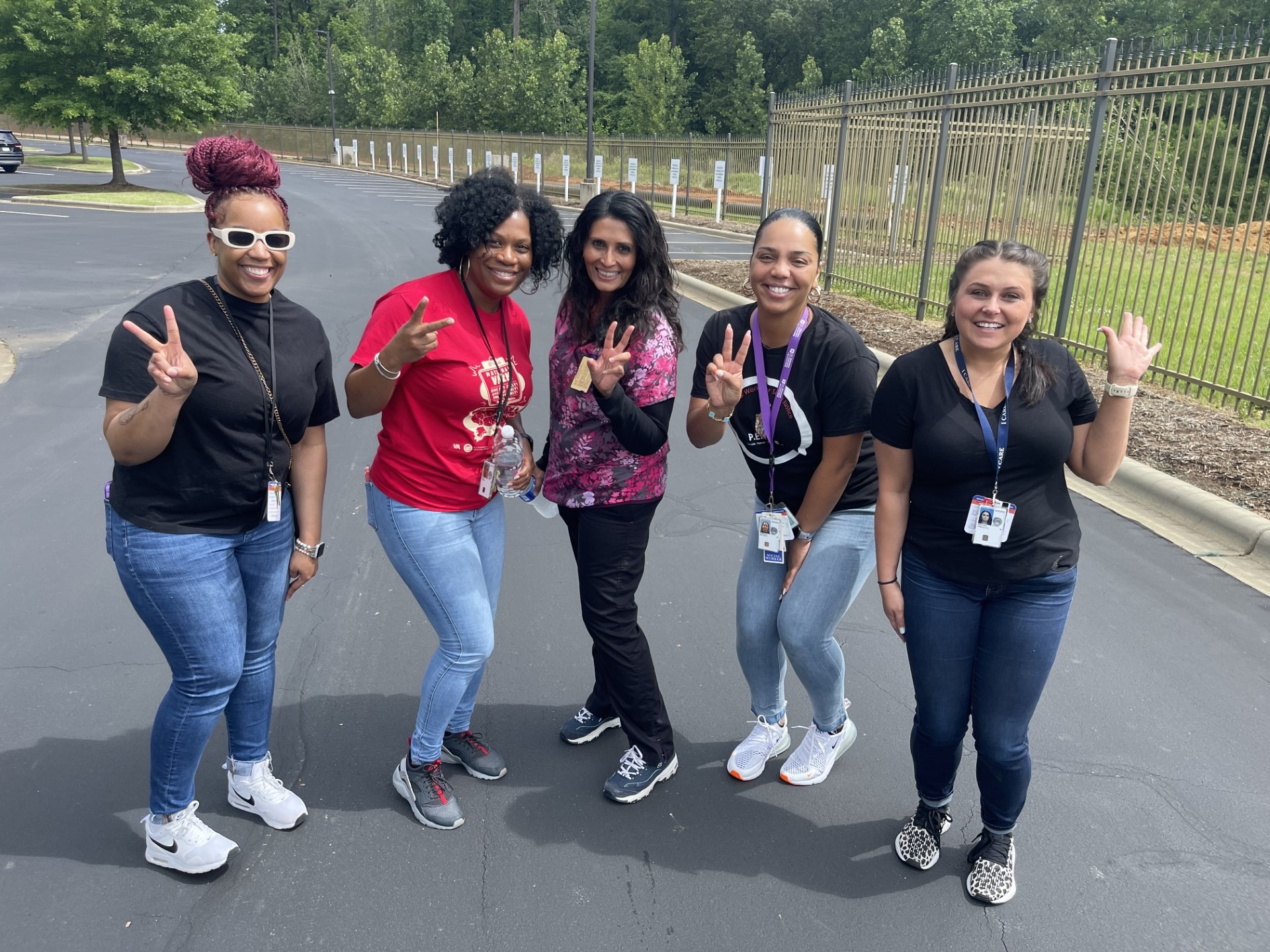
How do you ensure a diverse and empowered team within your organization?
I envision a community that reaches functional zero, has readily available resources to prevent returns to homelessness, and can quickly rehouse individuals without barriers. A community where everyone not only has access to equal housing opportunities but is also provided the appropriate skills and tools to maintain safe, affordable housing.

